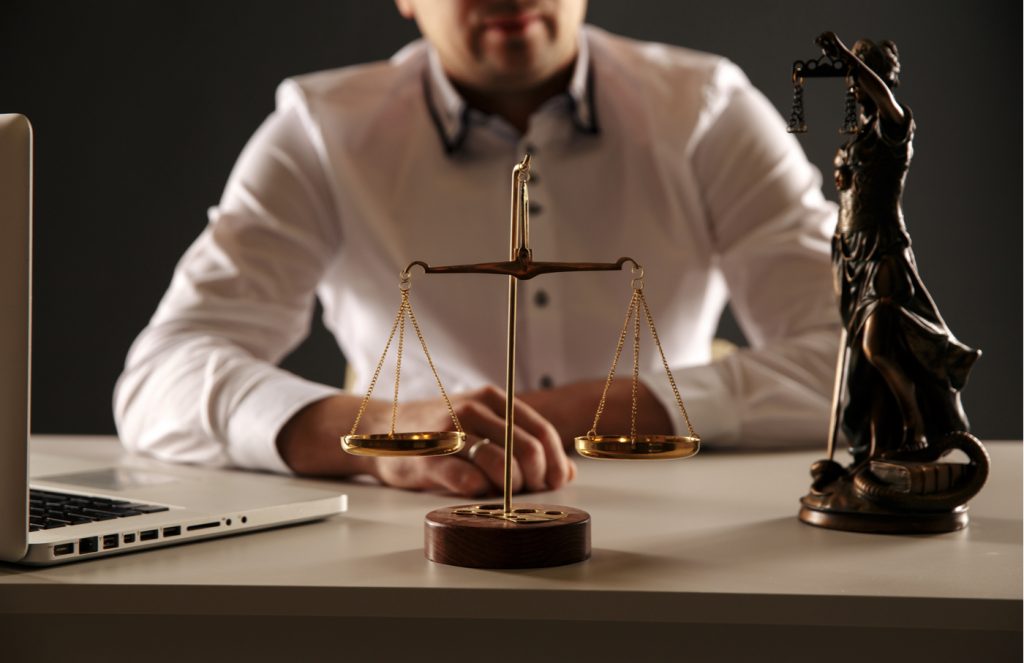
The Rogue Lawyer Epidemic: Can You Protect Your Law Firm Against It?

The definition of ‘rogue’ in simple terms is something that deviates from the normal order of a given system; hence, leaving destruction in its trail. At times, the destruction can be so detrimental that the organization in question crumbles under the stress and strain. And this is exactly what rogue lawyers are doing to law firms today!
How do rogue lawyers hurt their law firms?

Burdun Iliya / Shutterstock
One of the biggest risks posed by rogue attorneys to the law firm is a direct liability. That is, an authoritative body will hold the law firm accountable for failing to correctly supervise the attorney on the particulars of professional conduct. But wait a minute, what if the rogue lawyer in question was acting on his or her own accord?
According to Rule 5.1 of the Rules of Professional Conduct in Rhode Island, an attorney holding supervisory powers in a law firm could provide the basis to another lawyer’s harmful behavior; especially if the individual in question happens to be a junior lawyer.
Therefore, attorneys in managerial roles ought to take effective steps to ensure that junior attorneys adhere to the rules of professional conduct. If he or she fails to do so, they expose the rogue lawyer, the firm, and its partners to liability.
In fact, here are a number of ways the law firm can duly protect themselves from rogue activates:
Perform Regular Checks

Proxima Studio / Shutterstock
The first thing law firms need to do is familiarize themselves appropriately with all the practice areas of the attorneys under their firm. This familiarization should further extend to associates, partners, and clients as well. In fact, firms should regularly check on the legal activities of their attorneys. This way, they can easily catch wind of any rogue activities before they manifest into a catastrophe for the firm.
For example, if an attorney gets a client already having considerable billings but is not able to explain who the client is, what business the client does, or what role he or she as the attorney plays in the client’s legal strategies, then the firm should act promptly to ensure that the activities in question fall under the legal framework to prevent any liability.
Law firms should thoroughly vet new attorneys
Before the law firm gives the green light for an attorney to join their firm, he/she needs to go through a vigorous vetting exercise. This way, they can comprehend what the attorney is all about, whether he or she is committed to practicing within the legal boundaries of the law, and the type of clients that he or she is bringing to the firm.
For example, the law firm should review the attorney’s book of business in order to find out vital information such as their total billings, the history of their clients, as well as their independent research. If everything looks great and has been done by the book, then the new attorney can join the firm.
Develop a clear and concise model of engagement

only_kim / Shutterstock
One of the most vital ways of preventing any illegal or underhand tactics in the law firm is by coming up with a clear model of engagement. This document can then be disseminated to all the lawyers and partners connected to the law firm containing the best practices expected to be adhered to.
The document in question should run the gamut of the whole legal boundaries during practice. This includes implementing the right policies to find solutions to any potential conflicts in the law firm, monitor client activity, as well as account for all the paid funds.
Get an attorney to serve as an ethics advisor
In the event that a firm has many lawyers, the firm can designate an attorney to play the role of general counsel. Alternatively, they can also employ the services of an outside attorney for the same role. He or she can advise the firm on how to improve its operations and work appropriately within a legal framework. This way, they can also receive confidential counseling on how to tackle any rogue lawyer incidences in case they arise.
More in Legal Advice
-
A Step-By-Step Guide to Becoming a Real Estate Lawyer
A real estate lawyer specializes in legal matters related to property, from transactions to disputes. They ensure legality in real estate...
December 3, 2023 -
What Is Asylum & How Does It Work?
At its core, asylum is a protection granted to foreign nationals in a country because they have suffered persecution or have...
November 26, 2023 -
6 Reasons Why Sentencing Is Any Judge’s Toughest Assignment
When you picture a judge, you might imagine a stern figure in black robes, gavel in hand, delivering verdicts with unwavering...
November 14, 2023 -
Carrie Underwood Sued for NBC Sunday Night Football’s “Game On”
It is almost ritualistic. As the weekend winds down and Sunday evening approaches, millions across America gear up for a night...
November 12, 2023 -
Why Lawyers’ Productivity Has Increased in Modern Times
Remember the old days when your image of a lawyer might have been drawn straight out of an episode of “Matlock”...
November 5, 2023 -
Paying Down Debts Using Debt Relief Tactics
Debt is like that lingering headache that never seems to go away, no matter how much aspirin you pop. But there...
October 29, 2023 -
Pro Se: Your Right to Represent Yourself WITHOUT an Attorney
The legal system is complex and so, more often than not, people hire a professional attorney to navigate the legal system....
October 21, 2023 -
The Craziest, Most Expensive Hollywood Divorces of All Time
Hollywood is the land of glitz, glamour, and romance – until it is not. Over the years, we have seen our...
October 13, 2023 -
How Was Life as a Lawyer in Ancient Rome?
The Late Roman Republic was a period chock-full of political drama, rampant corruption, and the rise and fall of powerful figures....
October 8, 2023














